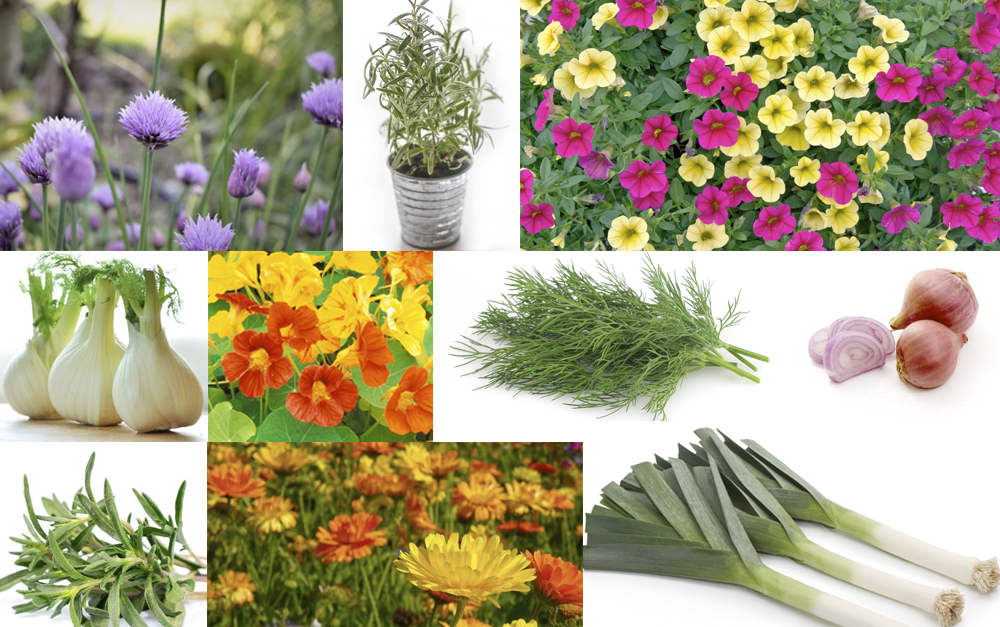Your tomatoes are ruby red, nearly ripe and so beautiful. The cucumbers and zucchini are prolific. You think to yourself, “Yes – I’ve got this!” Then… the bugs come to town. They sneak in one night, gorge themselves on your fruits and veggies, and leave destruction in their wake. The good news is that you don’t need to bring in truckloads of toxic chemicals to deal with these unwanted intruders. All you need are a few common plants, strategically placed throughout your garden, to keep those pesky bugs away. Here’s a few we’ve used that work great:
Edible plants that protect fruits and vegetables
Chives, leeks and shallots: These members of the Allium family are natural insecticides. They repel insects that love to prey on vegetables, including slugs, aphids, carrot flies, Japanese beetles, and cabbage worms. Plants that can benefit from having these plants growing next to them include tomatoes, peppers, carrots and kale. Oh, and they are also good for keeping aphids off rose bushes.
Dill is known to repel aphids, squash bugs, spider mites, and tomato hornworms. Dill is perfect for pairing with tomatoes, cucumbers, and any kind of squash.
Fennel repels aphids, slugs and snails and can be planted near strawberries, kale, kohlrabi, collards, broccoli, cabbage and radishes.
Thyme is a powerhouse for repelling whiteflies, cabbage worms, cabbage maggots, corn earworms, whiteflies and tomato hornworms. It’s also good for planting near kale, broccoli, cabbage and radishes.
Flowers that repel destructive insects
Nasturtiums are the champion of “companion planting,” which is growing one type of plant next to another for the benefits they bring to each other. These pretty little flowers release an airborne chemical that repels whiteflies, squash bugs, aphids, many types of beetles and cabbage loopers. Because there are so many insects that nasturtiums are great for keeping away, they are an ideal choice for planting as a border around the edges of vegetable gardens.
Petunias may look delicate but they pack a powerful punch when it comes to repelling aphids, tomato hornworms, asparagus beetles, leafhoppers and squash bugs. They come in a variety of beautiful colors, require minimal maintenance, and can be grown in beds, containers or even hanging baskets. It’s best to plant petunias in sunny areas near vegetables and herbs such as beans, tomatoes, peppers and basil.
Marigolds: Another flower that gardeners know and love for keeping pesky critters away is the marigold. French marigolds, the common type you can get at your local home and garden center, emit a substance through their roots that deters nematodes. They are also known to discourage a variety of insects such as aphids, cabbage loppers, cabbageworms and other types of beetles due to their pungent fragrance. Plant marigolds around your tomatoes, or use them as a border mixed with nasturtiums, and you’ll have a happy, healthy garden to enjoy all season long.

